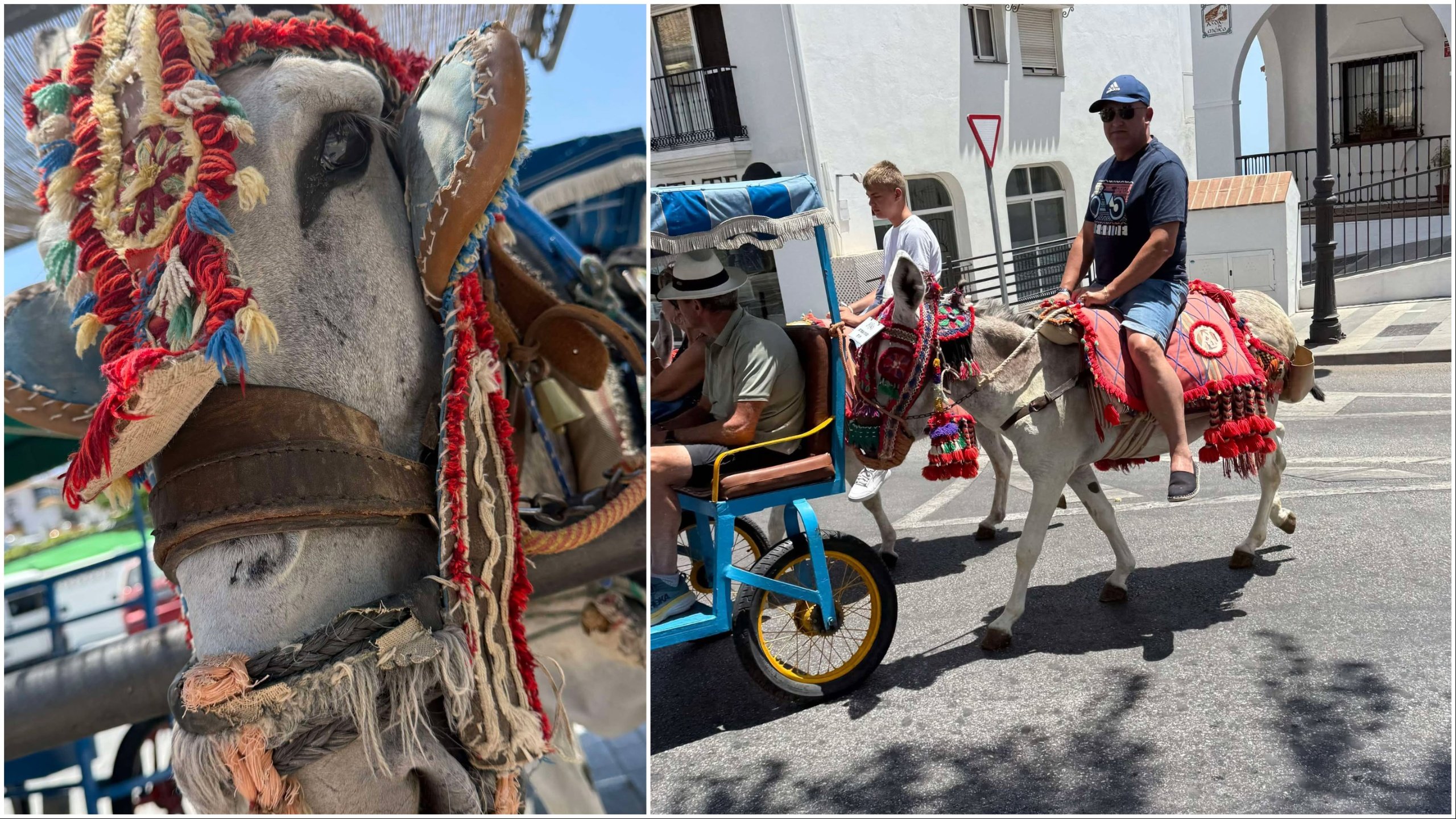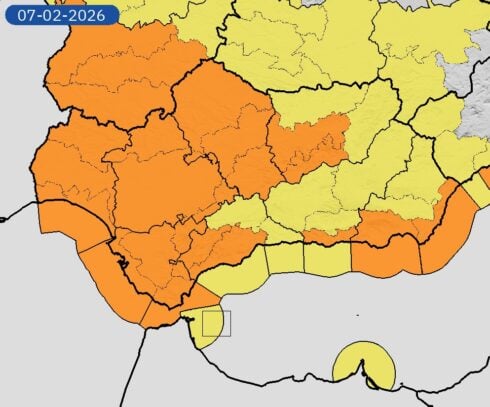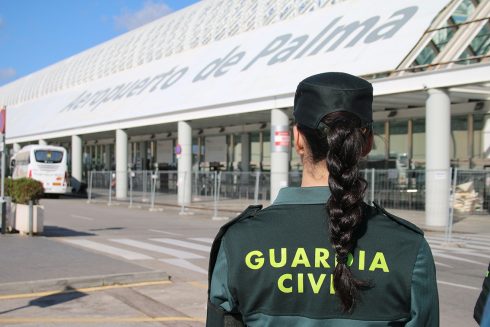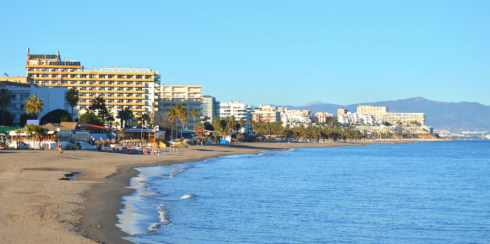ANOTHER complaint has been filed against Mijas’ controversial donkey taxi operators after they were caught working them during an extreme heat warning.
Animal rights group PACMA lodged the complaint with the Guardia Civil after witnessing the burro-taxis operating during a yellow weather alert last month.
A series of new rules were brought in last April to improve the animals’ welfare, including longer ropes and cleaning up the faeces, as well as more water troughs and shade from the sun.
But the most critical new law was the prohibition on working the animals between 2pm and 6pm when a yellow heat alert is issued.
READ MORE: British expat gored during bull run and taken to hospital in Spain’s Costa Blanca
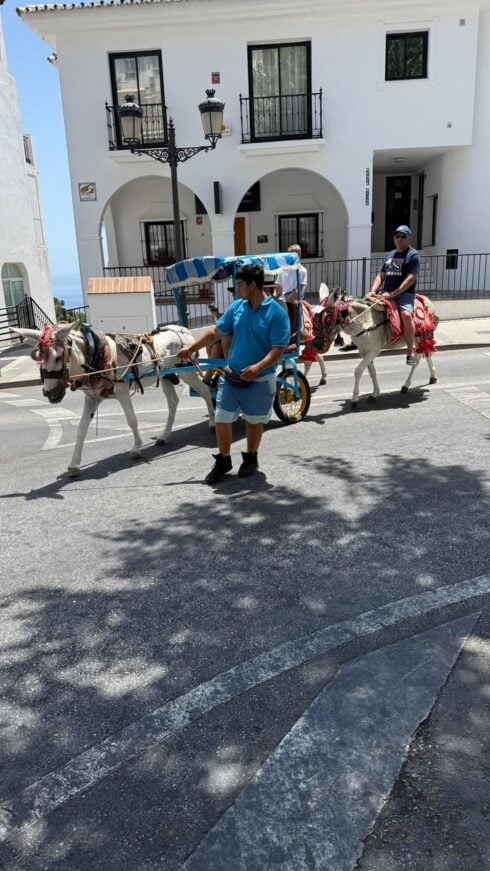
PACMA representative Isabel Ardao, who filed the complaint after seeing the violation on June 25 as a yellow alert was in place, said that police were unable to respond due to understaffing.
“What happened is because nobody controls this new law, neither the council nor the police,” Ardao told the Olive Press.
“We don’t want to see this continued abuse in exchange for money. We’re living in 2025, they are animals who feel things.”
The complaint is just the latest in PACMA’s decade-long campaign against what they term ‘institutionalised animal exploitation.’
The organisation has held annual protests for five years, drawing significant expat support from residents horrified by the treatment they witness.
Ardao added that PACMA’s legal team has been holding meetings with Mijas Council for over ten years regarding the treatment of the donkeys, but progress has been minimal.
READ MORE: Looking to get a dog in Spain? You may have to take a four-hour course on how to care for it
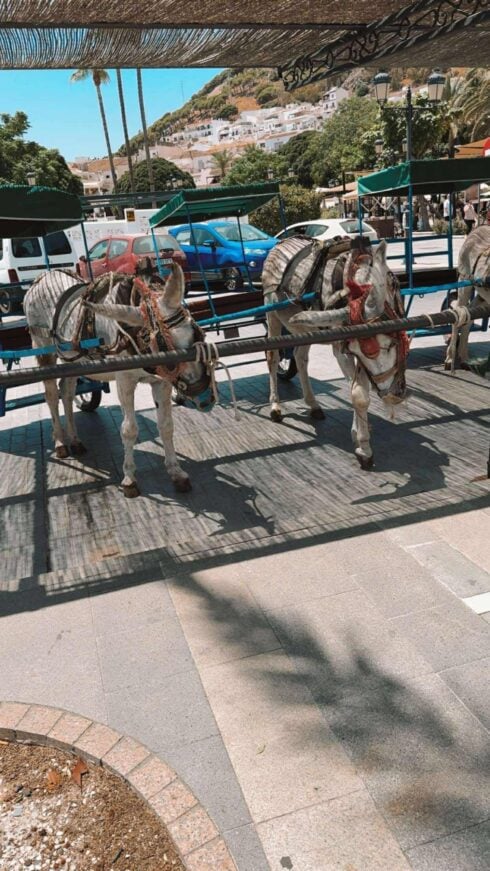
“PACMA wants the council to open a refuge, but the council wants to continue having donkey licences and making money from this,” she explained.
Mijas resident Lisa Johansen described her anger at both the practice and the overweight tourists who choose to ride the donkeys.
“I think it’s disgusting, and I can’t comprehend how the workers can excuse this treatment of these poor animals,” she said.
“I also can’t believe these fat people thinking it’s ok for them to ride an animal so much smaller than them, while laughing and taking pictures.”
Johansen recounted a disturbing encounter when she petted one of the donkeys during a visit. “A man came up to me and asked if I wanted a ride, I responded I would never support this disgusting activity.
READ MORE: One gored and six trampled on: Day two of Spain’s Running of the Bulls
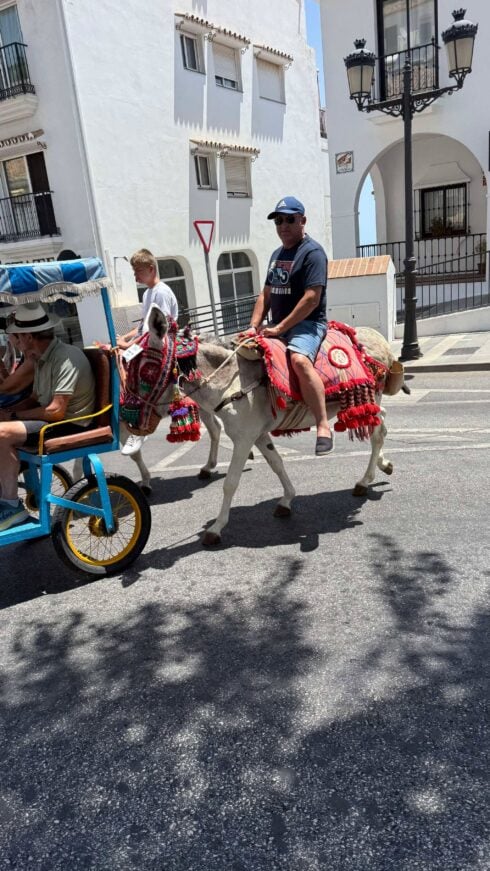
“He started yelling and calling me a whore and everything in Spanish.
“Then turned to the donkey to punish him instead – the donkey had pooped and the man yelled at it and hit it hard with a broom.”
Such incidents underscore the broader welfare concerns that have never been adequately addressed.
One UK native, who asked to remain anonymous, has lived in Mijas for six years.
She told the Olive Press she has witnessed repeated violations including donkeys tethered with ropes shorter than the legally required 50cm minimum and animals working in temperatures exceeding 30C.
“These donkeys are constantly in a bad state,” she said.
READ MORE: WATCH: World-famous Pamplona bull runs start in Spain
“They are such a bad advert for Mijas and affect the tourist trade in a detrimental way.”
The ongoing crisis has prompted calls for the service to be suspended entirely until proper welfare standards can be guaranteed.
PACMA has suggested alternatives such as tuk-tuks, arguing they would be equally popular with tourists without involving animal exploitation.
However, the practice continues largely unchecked, with donkey taxi trips still available for booking through the official Mijas Tourism website despite the mounting complaints and legal challenges.
When contacted about the June complaint, Mijas Council claimed to have ‘no record of the existence of this complaint’ and insisted no notification had been received – a response that has frustrated campaigners who have been raising concerns for over a decade.
READ MORE: Spain’s vital Costa del Sol – Ronda road is set to reopen sooner than expected
The town hall has attempted to address criticism by creating an Animal Welfare Department and announcing plans for a city veterinarian.
Most significantly, officials have proposed developing a donkey sanctuary called Refugio del Burrito on a 10,000-square-metre plot, featuring spacious stables and recreational areas.
The council is also collaborating with Donkey Dreamland, a rescue centre proposing donkey walks as an alternative to rides, and claims to be implementing new measures including shaded rest areas, additional drinking troughs, and dedicated resting zones.
But critics remain deeply sceptical about the council’s promises, pointing out that similar pledges have been made for years without meaningful action.
“They’ve been talking about it since I’ve been here, and they’ve been talking about it for years before then,” the UK resident said regarding the planned sanctuary.
“I hope that’s what they’re going to do, but I will reserve judgement until they actually do it.”
She suggested that with proper treatment – including adequate food, water, and freedom at night – along with alternative uses like donkey walks or sanctuary visits, the animals could still generate income without the current cruelty.
“It’s all good and well saying donkeys built Mijas pueblo but times have changed,” she added. “People don’t want cruelty to animals anymore, and sadly that’s one thing Spain is very good at.”
Despite the controversy and mounting evidence of mistreatment, the donkey taxis remain a fixture of Mijas’ tourism industry, with the council maintaining that licences and annual veterinary checks are publicly available for viewing – though critics argue this provides little protection for animals suffering in plain sight.
Click here to read more Costa Del Sol News from The Olive Press.

